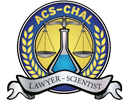There is some relief for people who have committed crimes when they were between the ages of 17 and 21. This relief is set out in the Holmes Youthful Trainee Act. The Holmes Youthful Trainee Act offers a mechanism by which a youth charged with committing certain crimes between his or her seventeenth and twenty first birthdays may be excused from having a criminal record.
When an offender is assigned to Holmes Youthful Trainee Act status, there is no judgment of conviction:
Assignment of individuals between ages of 17 and 21 to status of youthful trainee.
(1) Except as provided in subsections (2) and (3), if an individual pleads guilty to a criminal offense, committed on or after the individual’s seventeenth birthday but before his or her twenty first birthday, the court of record having jurisdiction of the criminal offense may, without entering a judgment of conviction and with the consent of that individual, consider and assign that individual to the status of youthful trainee. (MCL 762.11; emphasis added)
Assignment to youthful trainee status is not a conviction, and accordingly there is no sentence. The use of the term “assign” rather than “sentence” was deliberate on the part of the legislature: a sentence is something that follows conviction, while under HYTA there is no conviction.
If the offender met all of the criteria to be placed under the HYTA, but has yet to receive the remedy associated with it, the defendant is entitled to have any record of the crime be closed to public inspection pursuant to HYTA.


